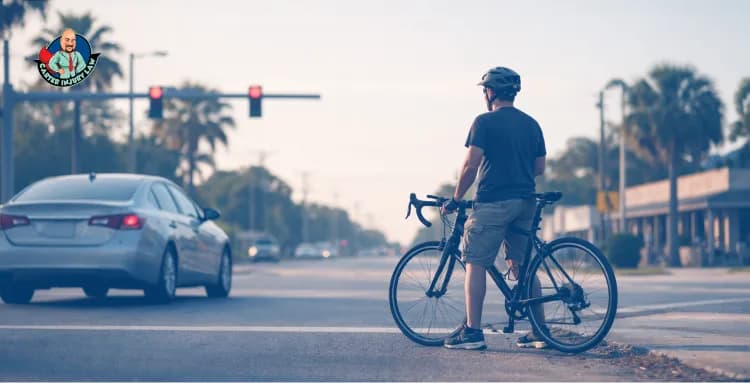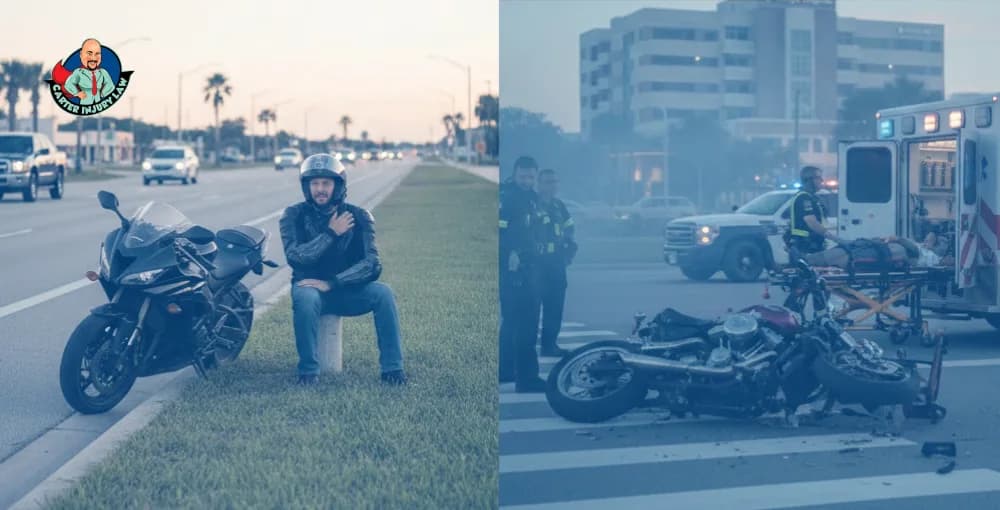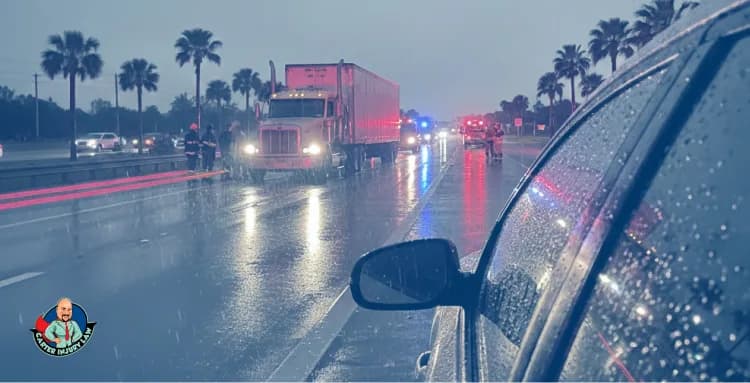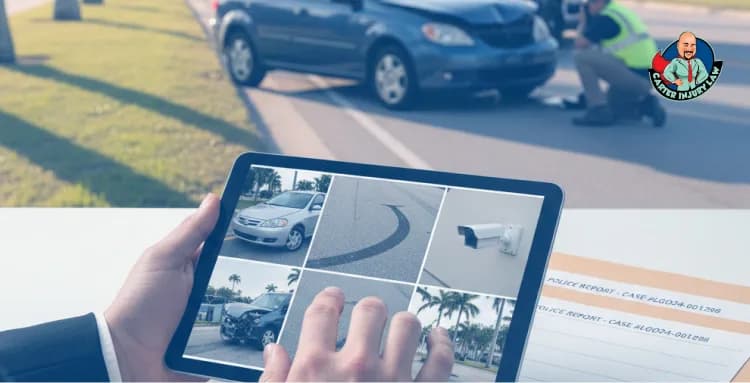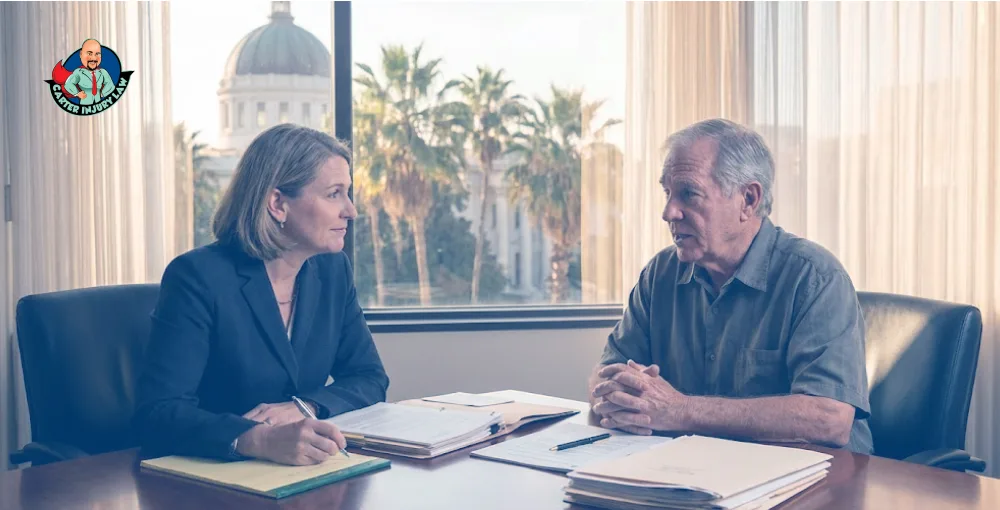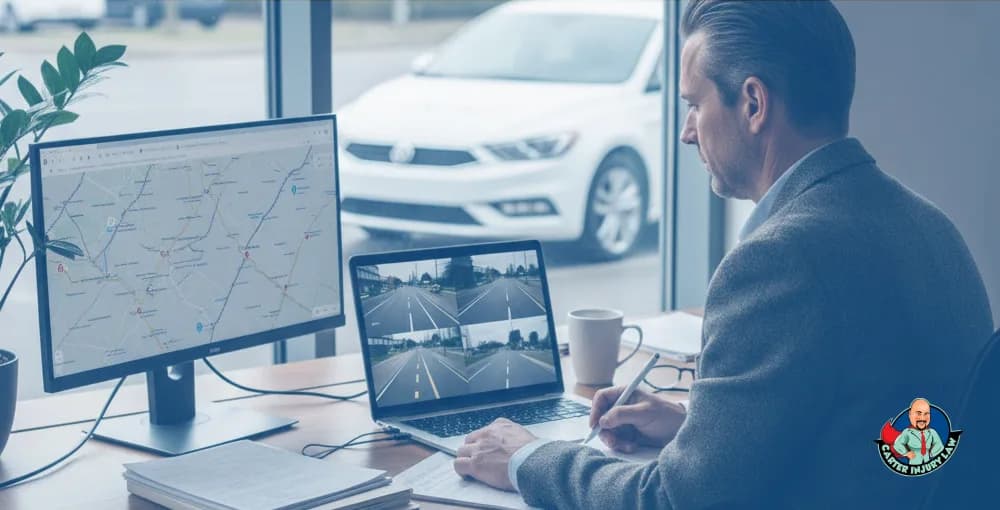The first few seconds after a car accident feel like someone hit pause on the world, except your heart did not get the memo. Metal bends, glass breaks, and time stretches thin, yet decisions must arrive instantly.
In Florida, where palm trees sway but the laws rarely do, those decisions can decide whether you walk away with dignity or with debt that ages like spoiled milk. Most people believe they will handle it with common sense, that clarity will guide them through flashing sirens and shaken voices. But clarity, like brakes on wet asphalt, often fails when you need it most.
And that is when the real mistakes begin.
Mistake 1: When You Think a Police Call Is Optional
The scene looks harmless enough, a dented bumper, two drivers rubbing the back of their necks, muttering that it is “not that bad.” In Florida, this is the moment where good intentions quietly dig a financial grave. People convince themselves that skipping the police will save time, that a handshake and an exchanged phone number are enough. Except memory is a fragile witness, and trust evaporates faster than gasoline on pavement.
A police report is more than paperwork, it is the skeleton key of your case, the detail that decides whether insurance takes you seriously or treats you like background noise. Without it, your version of events becomes a bedtime story, comforting to you but irrelevant to everyone else.
How to avoid it? Call the police, every single time. Even if the accident feels small, even if the other driver promises they will “handle it.” Because when the dust settles and the bills arrive, the only thing worse than a bent bumper is a bent truth.
Mistake 2: Adrenaline Is Not a Doctor
The body is a magician in the moments after a crash. Adrenaline cloaks pain like a cheap stage curtain, convincing you that you are fine, that you can drive home, sleep it off, maybe even laugh about it later. In Florida, that illusion can cost you far more than a sore back. The state’s Personal Injury Protection, politely known as PIP, demands that you seek medical attention quickly. Wait too long, and your right to coverage evaporates, as if your injuries never existed.
The tragedy is quiet. By the time the pain finally announces itself, sometimes days later, the law has already decided you were careless. And the insurance adjuster, who suddenly sounds friendlier than your own relatives, will happily remind you that your hesitation has left them off the hook.
How to avoid it? Do not trust adrenaline. See a doctor immediately, even if you feel like nothing is wrong. Pain has a way of whispering late, and in Florida, lateness is the most expensive voice of all.
Mistake 3: Sorry Can Cost More Than the Crash
Human instinct is a strange companion at an accident scene. Our first reflex is often to apologize, even when we have done nothing wrong. In Florida, those two little words, “I’m sorry,” can echo through courtrooms and insurance claims louder than the crash itself.
Politeness as poison. In everyday life, courtesy is harmless. At the dinner table, an apology smooths over spilled wine. At an accident scene, it can be read as an admission of liability, one that Florida’s comparative negligence system is all too eager to use against you.
Your words become evidence. Insurance companies do not listen for compassion, they listen for leverage. Every phrase you utter, every shrug, every nervous laugh, can be twisted into a confession you never meant to make.
Facts, not feelings. The safest response is to stick to the basics: exchange information, wait for law enforcement, provide the facts without embroidery. Think of it as writing the world’s driest diary entry, boring but bulletproof.
How to avoid it? Let silence do the heavy lifting. You are not on trial at the scene, you are simply surviving it. Save the apologies for when they will not empty your wallet.
Mistake 4: The Smiling Voice on the Other End May Not Be Your Friend
The kind voice on the phone, the one that calls you by name and asks how you are holding up, is not there to be your confidant. In Florida, insurance companies are legally obligated to minimize payouts, which means their sympathy is often a velvet glove over an iron fist.
A recent report by the Insurance Research Council found that accident victims who hired attorneys received settlements that were 3.5 times higher than those who went it alone. That statistic is not just numbers on a chart, it is a mirror showing how much insurers rely on your trust to save themselves money.
And according to a study from the Florida Office of Insurance Regulation, insurers deny or reduce nearly 20% of PIP claims for technical reasons, often exploiting paperwork errors or delays. Translation, their business thrives when you stumble.
How to avoid it? Treat every interaction with caution. Share only the facts, avoid speculating about your injuries or the accident, and if possible, let an attorney speak for you. Remember, the insurer is not your partner in healing, they are your opponent in a game you did not choose to play.
Mistake 5: Going It Alone, and Losing Twice
Many people convince themselves that hiring a lawyer is an extravagance, something reserved for blockbuster lawsuits with headlines and camera crews. After a Florida car accident, that belief is one of the most expensive myths to cling to. The truth is less cinematic and far more painful.
Complex laws, simple traps. Florida’s accident system is wrapped in statutes, deadlines, and exceptions that are easy to overlook. Miss a filing deadline or fail to document correctly, and your case may collapse before it begins.
Insurance loves a solo act. Adjusters know that without legal representation, you are more likely to accept the first offer, no matter how insulting. Data from the Insurance Research Council shows that unrepresented victims routinely settle for a fraction of what they could have received.
Stress disguises itself as strength. People tell themselves they can manage the phone calls, the forms, the negotiations, while healing from injuries. In reality, every unanswered question becomes another weight on a body already bruised.
The problem is not just the crash itself, it is the aftershocks that ripple through your finances, your health, and your sense of control. And this is where most people realize too late that skipping professional guidance is not a shortcut, it is a detour into deeper loss.
We Carry the Weight You Shouldn’t Have to Bear
Survival is not the same as recovery. You can patch your car, you can ice your neck, but without someone to navigate the labyrinth, you are left standing at the entrance, exhausted before the first turn.
We do not promise you perfection, because life already broke that illusion on the road. What we promise is protection, strategy, and a voice that does not bend when yours trembles. In a state where one wrong word can erase your claim, Carter Injury Law makes sure your story is not only heard but also respected.
Expert knowledge of Florida law. We make sure that everything is filed correctly and on time, so you never have to pay a penalty for a technicality.
Communication with insurers should be strategic. Adjusters speak in euphemisms and loopholes. We are there as your translator and advocate, ensuring that your words and your story cannot be twisted against you.
We coordinate with healthcare providers to make sure every injury is documented properly, protecting your entitlement to compensation.
The data shows that represented clients receive significantly higher payouts. We negotiate assertively, looking for what you deserve rather than what the insurance company hopes you will accept.
We work on a contingency fee basis, which is a fancy way of saying you do not pay us unless we win for you. No upfront bills, no awkward conversations about hourly rates while you are still reeling from the crash.
If we succeed, our fee comes from the recovery we secure, not from your wallet while you are still picking up the pieces. In other words, we only succeed when you do. The accident may not have been your choice, but how you rise from it can be.



